This special issue of our online Lumen journal discusses an international Lapland UAS and the significance of internationalisation in our region, both in national and global networks.
Suomeksi
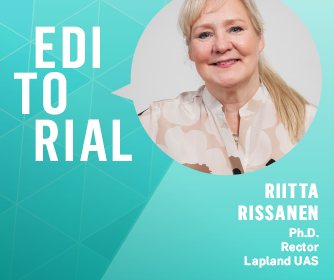

This special issue of our online Lumen journal discusses an international Lapland UAS and the significance of internationalisation in our region, both in national and global networks.
Suomeksi
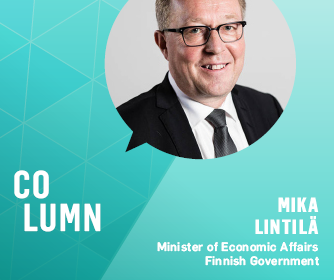
Finland has good opportunities to respond to changes in tourism: we have worked hard to promote sustainable travel and digitalisation in the sector, and Finland also attracts international travellers as a destination offering unique nature and culture experiences.
Suomeksi
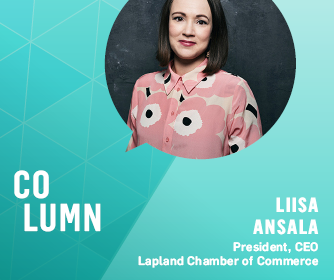
Lapland is a central region in the Arctic and a logistics hub in the Barents region. Lapland is a diverse region, with its various strengths helping the whole region to develop. However, post-pandemic growth threatens to remain at halfway without appropriate competence.
Suomeksi
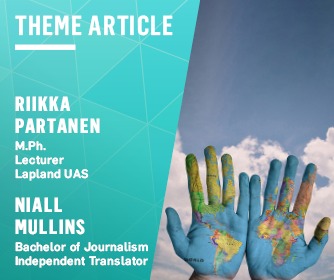
More university graduates are leaving Finland than are immigrating. It would be important to successfully brand in-service training in international competence so that Finnish and local companies understand its significance and necessity for Finnish working life.
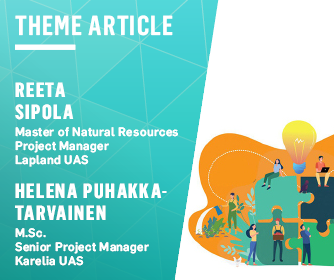
Around European rural areas, many companies are in a situation where finding new forms of earning is necessary to enable them to make a living and develop their operations.
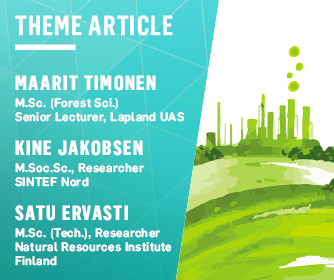
Local actors are key players in creating and implementing green growth and green innovations. The Green growth activities require a strong territorial approach that is supported and boosted by best practices from other regions. The GRUDE project focuses on arctic bioenergy, blue economy and sustainable societies.
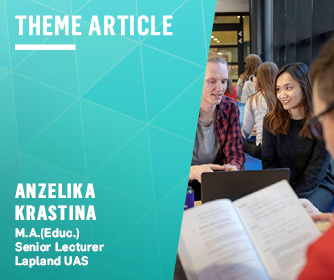
This article aims to look at how can global education is a part of teaching at Lapland UAS and how can its results be seen. It provides a case study of former International Project Management specialization study programme and current training within KATOS project aiming to increase EU funded project competence among relevant regional stakeholders.
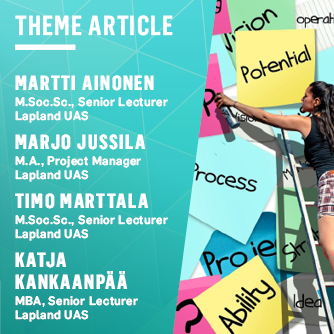
A shared coaching model and cooperatives boost entrepreneurship and reduce youth unemployment in the EU. In Lapland, the current availability of cooperative studies is low. Lapland UAS participated in the recently ended Cooperative Campus development project funded by Horizon Europe.
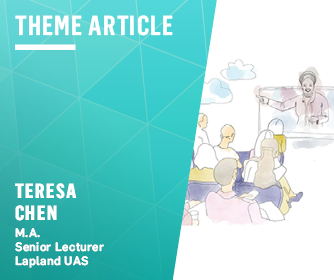
Knowledge sharing and acquisition forms the foundation for international collaboration during which knowhow is exchanged and new perspectives are gained. Lapland UAS has an established network of international partners and has been involved in various international activities to enhance its global reach and address the strategic issues concerning internationalisation.
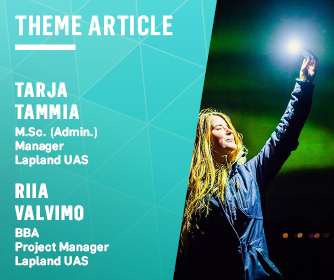
Entrepreneurs and organisations can collaborate with International Business students in various ways. For example, they can provide students with thesis ideas and topics, offer practical training positions, and participate in different sorts of events and even lectures.
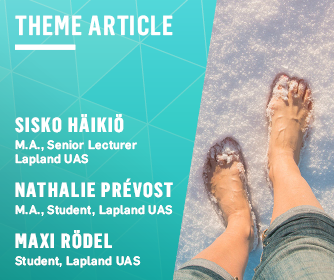
Tourism companies in Lapland are in many ways trailblazers for internationalisation, when it comes to marketing, serving customers and managing human resources internationally. In this article, we demonstrate how international students can concretely enrich the intercultural competence in local businesses.
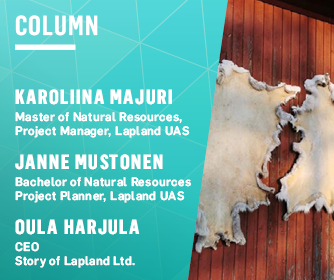
The contact between tourists and products from Lapland ceases with the end of the trip and it is almost impossible to buy authentic Lappish goods from outside the region. An authentic, durable, and high-quality product made in Lapland has potential to be successfully marketed if it is available through modern sales channels.
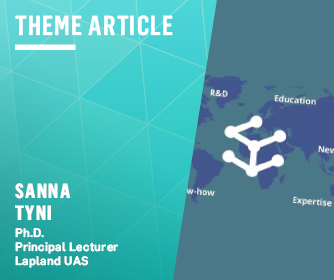
Arctic areas, as intrinsically challenging operating areas, require a knowledge of Arctic conditions and the impacts of long distances on activities. In recent years, considerable development work has been conducted in the circular economy field.
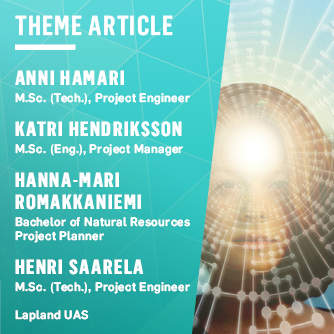
Unless circular economy is explained in a way that is understandable, people may think it equals just recycling. Sea Lapland’s Resource Intelligence project challenges the region to think in cycles.
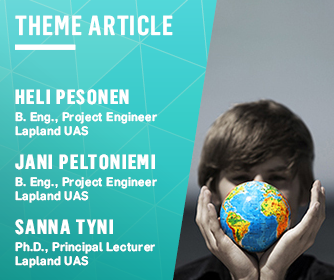
Industrial circular economy has become one of the Lapland’s top areas of expertise and an important part of Lapland’s smart specialisation strategy. The strengthening of circular economy has progressed from the operational phase to the implementation phase.
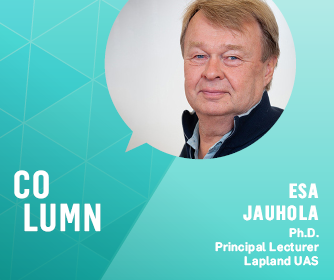
Today, networking between individuals and organizations more often takes place digitally. For small firms it is a good way to expand the partnerships and to find new customers. My wish is that also in future, Lapland UAS, together with partners, will look to the future and support cross-border projects and educational programmes where the young generation learns about the opportunities of the European Arctic.
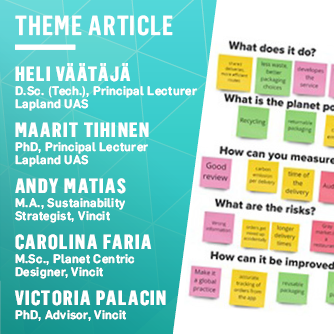
A novel method – Planet-Centric Design – combines service design with systems thinking. The Idea is to increase master degree students’ awareness of sustainability in the design of new services and business concepts. Based on the student feedback, the implementation of the course was successful.
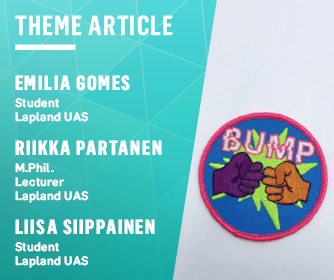
International students often do not seem to be given the chance to actually get acquainted with local Finnish people, as they instead opt to interact and experience local sights with other non-native students in the end. The Culture Bump initiative is to make planners and participants from different countries and cultures interact with one another.